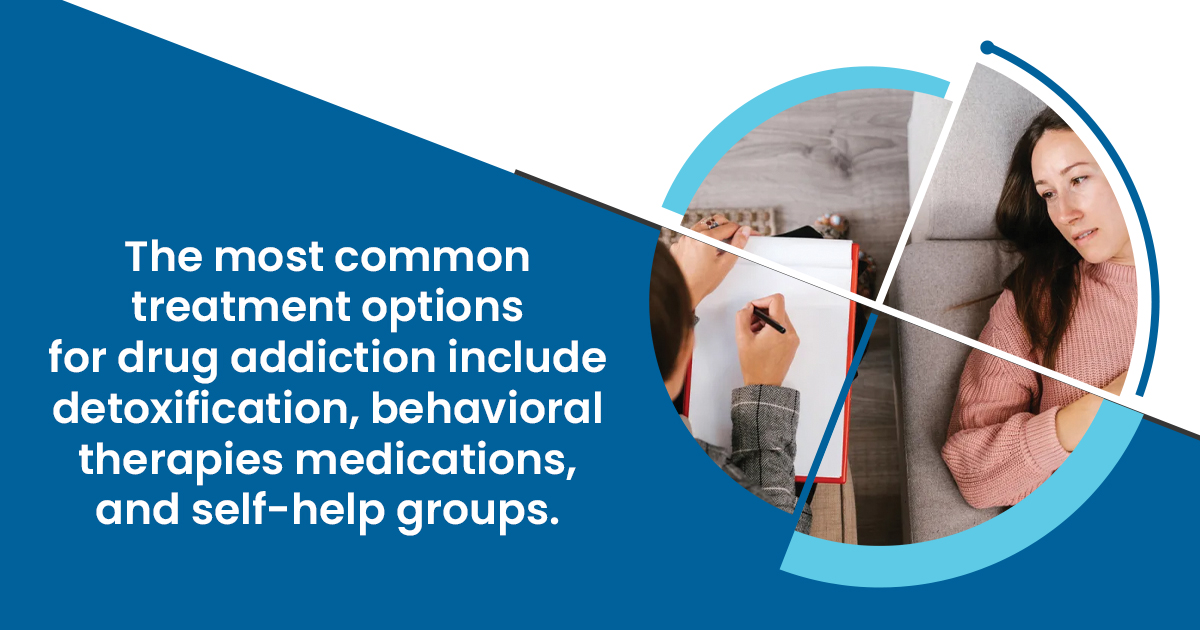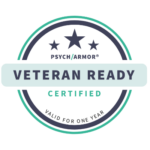Life can be unpredictable and bring challenges you never thought you would have to deal with. Being forced to see a loved one struggle with a substance use disorder is one example of such. The addiction of your loved one can negatively impact your mental and emotional health.
In such a situation, both you and your loved one require help. Although you cannot force your loved one to stop abusing drugs or alcohol, your love and support can benefit their rehabilitation. You need to understand how to help your loved one with drug addiction.
The following blog post will discuss steps to resist addiction and possible treatment options.
Key Takeaways
Drug addiction affects not only your mental health but your physical health as well. You feel stressed and lose interest in daily life activities after getting involved in drug addiction. The good thing is that drug addiction is treatable; get help as soon as possible.
- Discussion for understanding the nature of drug addiction is the first step to resisting addiction.
- Diagnosis is the professional treatment process in which medical professionals determine the nature of your addiction.
- The most common treatment options for drug addiction include detoxification, behavioral therapies, medications, and self-help groups.
- Preventing drug addiction may include following the prescription and guidelines to avoid relapse.
If you or someone in your social circle is struggling with drug addiction, seek professional medical help from Indiana Center for Recovery. Give us a call at (844) 650-0064 to learn more.

What is Drug Addiction?
Drug addiction is a long-lasting disease characterized by uncontrollable and drug-seeking habits. People use drugs despite adverse consequences and potentially long-lasting changes in the brain. The negative behaviors found in drug users may result from the alterations in the brain.
Drug addiction is a relapsing condition as well. Relapse is the act of using drugs again after making an effort to stop. The voluntary act of using drugs is the first step on the road to addiction. However, your capacity to decide against doing so is impaired with time.
The Steps to Resist Drug Addiction
Discuss the Addiction Issue
There are a few things you can and cannot say to make the conversation with your loved one about their substance usage more fruitful and avoid friction.
Do
- Express your worries and stick to facts rather than views
- Offer assistance and information on treatment, including how it operates and how it can help people quit using drugs
- Offer to accompany them to a doctor’s appointment
Don’t:
- Critique or judge
- Overlook your requirements and take care of yourself
- Scream or act enraged
Understanding the Drug Addiction
There are various reasons why people begin using drugs. Many people use drugs or alcohol to ease the emotional suffering from mental health issues like depression. Some people who self-medicate may know they have a mental health problem but cannot discover healthy coping mechanisms.
Whatever the reason behind the addiction of your loved one, you need to understand the status of addiction. If you don’t know the nature of addiction, you will be unable to find ways to resist it.
The common signs of drug addiction may include the following:
- Experiencing problems at the workplace
- Developing new health issues
- Financial issues
- Confusion
- Snubbing a meal
- Withdrawal from family and friends
- Abrupt changes in mood and conduct
- Taking part in dangerous activities
- Losing interest in daily life activities
- Secretive actions to cover up drug use
Diagnosis
Drug addiction diagnosis demands a thorough assessment, which frequently involves an evaluation by a psychiatrist, psychologist, or certified alcohol and drug counselor. Blood, urine, and lab tests are the common ways to diagnose drug addiction.
The tests do not serve as an addiction diagnostic tool. However, the tests might help monitor the therapy process and healing.
Most mental health professionals utilize the criteria found in the Diagnostic and Statistical Manual of Mental Disorders (DSM-5), issued by the American Psychiatric Association, to diagnose drug use disorders.
Seeking Treatment Options
You can resist an addiction and maintain a drug-free lifestyle with treatment programs. Your physical or mental health conditions, and the medication you use, will affect how you are treated. It’s crucial to maintain long-term follow-up to avoid relapse.
Since drug addiction is a chronic condition with a chance of recovery and relapse, treatment for it frequently necessitates ongoing care. It is often preferable to treat co-occurring mental health illnesses and drug addiction rather than treat them separately.
The three main methods of treatment include:
- Detoxification
- Cognitive and behavioral therapies
- Medication-assisted therapies
There are also different kinds of treatment settings, including:
- Outpatient counseling
- Intensive outpatient treatment
- Inpatient treatment
- Long-term therapeutic communities
Most addiction treatment programs provide the following:
- Sessions in individual, group, or family therapy
- Concentration on comprehending the nature of addiction
- Assistance quitting using drugs and avoiding relapse
- Varying care levels, such as outpatient, residential, and inpatient programs
Detoxification
Detoxification, or withdrawal therapy, aims to make it possible for you to stop using the addictive substance as soon as possible. It might be okay for specific individuals to receive outpatient withdrawal therapy. Others could require admission to a residential treatment facility.
Drug withdrawal from different medications, such as depressants, stimulants, or opioids, causes various side effects and requires multiple methods. To detox, the drug’s dosage may be gradually decreased, or other medications, such as methadone, buprenorphine, or a combination of buprenorphine and naloxone, may be temporarily substituted.
Cognitive and Behavioral Therapies
In behavior therapy, a type of psychotherapy, patients may receive counseling from a certified alcohol and drug counselor. Counseling and treatment can be provided to a person, a family, or a group of people.
The counselor or therapist can:
- Assist you in finding coping mechanisms for your drug urges
- Offer advice on how to stay away from drugs and prevent relapse
- Advise on how to handle a relapse if it happens
- Discuss your job, any legal challenges, and your relationships with family and friends
- Include family members, encourage them to improve their communication skills, and provide assistance
Dialectical Behavior Therapy (DBT)
DBT is particularly beneficial for those who struggle with emotion regulation and management. DBT has shown potential in managing and treating many mental health problems.
Assertive Community Treatment (ACT)
Unlike residential or hospital settings, ACT offers mental health care in the community. Your treatment strategy will be centered on your requirements and long-term objectives.
Therapeutic Communities (TCs)
A Therapeutic Community is a long-term residential treatment program with the primary goal of assisting individuals with addiction in creating healthier beliefs and behaviors.
Medications
Your healthcare professional might suggest medication as a part of your addiction treatment after consulting with you. Although remedies cannot cure opioid addiction, they can aid in rehabilitation. These medications may lessen your opioid cravings and aid in keeping you from relapsing.
Buprenorphine, methadone, naltrexone, and a combination of buprenorphine and naloxone are possible medication alternatives for treating opioid addiction.
Self-help Groups
Most self-help support groups offer 12-step programs, first established by Alcoholics Anonymous (AA). People with addiction receive assistance through self-help support groups like Narcotics Anonymous NA).
The message of the self-help support group is that addiction is a chronic condition that can relapse. Self-help support groups can lessen the feelings of loneliness and shame that may trigger a relapse. You can get assistance finding a self-help support group from your therapist or certified counselor.
Preventing Drug Addiction
The first step in preventing drug addiction is getting an education. Education in schools, neighborhoods, and families helps people avoid abusing drugs or alcohol for the first time or misusing prescription medications.
Additional measures to stop drug addiction include:
- Following prescribed drug directions and never trying to take more than the recommended dose
- Never sell or give away your prescription drugs to a third party
- Keep your prescription out of the reach of kids in a secure location
- When your treatment is finished, if you still have any prescription drugs left over, contact a local drug take-back program or pharmacy mail-back program to dispose of them properly.
During times of stress and change, there is a significant rise in the risk of drug abuse. Divorce, job loss, and the loss of a loved one are all situations that can make an adult more likely to take drugs. Divorce in the family or switching schools can all increase the risk for teenagers.
During these times of change, it’s critical to use healthy coping strategies, such as exercising, practicing meditation, or picking up a new interest. If you’re having trouble controlling your stress, consider consulting a mental health expert.
Frequently Asked Questions (FAQs)
What are four ways you can help someone who is addicted to drugs?
There can be a lot of difficulties when a loved one struggles with addiction. Al-Anon is one such organization that may teach you coping skills, offer resources, and assist people with addiction.
It would help if you learned more about addiction issues to help someone.
Understand the addiction process of the individual. Find out more about the effects addiction has on family and friends. Knowing more about yourself and your loved one may give you more power and insight.
It might be beneficial to seek counseling to help yourself and a loved one. The more you can control, the more effectively you can support your loved one.
What is the most operational way to treat drug addiction?
Counseling and other behavioral therapies are the most effective ways to treat drug addiction. The use of cognitive behavioral therapy is widespread. Play therapy emphasizing cognitive behavior is frequently used to address children’s mental health issues.
Behavioral analysis is a component of acceptance and commitment therapy (ACT), a form of psychotherapy by a mental health professional. Even though CBT and ACT are commonly contrasted, ACT has its unique strategy. Relational frame theory, which emphasizes thought processes and human language, is the foundation of ACT.
What is the best way to prevent addiction to drugs?
There are numerous ways to prevent substance abuse. It is hard to find out one specific way to prevent drug addiction. However, medical professionals recommend some techniques and methods to avoid drug addiction.
The effective ways to stop drug addiction are as follows:
By avoiding friends or relatives who encourage drug addiction, you can develop healthy relationships and friendships
You should get professional assistance from a qualified therapist or counselor if you are struggling with a mental ailment like anxiety, depression, or post-traumatic stress disorder
Know more about your family’s history of addiction and mental illness
You can manage the stressors in your life by developing stress-management techniques
What do you say to the individual who is addicted to drugs?
Clarity is generally the most excellent method to communicate with others. Medical professionals must be clear and truthful when communicating with people with addiction. Clarity is critical while communicating with them, and don’t be afraid to express your emotions in a composed manner.
Speaking your mind is often a wonderful place to start. Inform your loved one of how it hurts and concerns you to watch them doing drugs and how you worry for their safety. You may get an opposing view in response, but that does not mean you shouldn’t say it.
Don’t put pressure on your loved one to answer your questions immediately. You can offer to assist them and describe how you intend to do so, but if you try to force them to make a decision right now, you’ll encounter opposition.
Get Professional Medical Help from Indiana Center for Recovery
Drug addiction is destructive to your health. Without proper treatment and care, drug addiction produces harmful effects. You need to seek professional medical help before it’s too late. Indiana Center for Recovery is there to assist you in such a situation, offering mental health services.
Indiana Center for Recovery offers a wide range of addiction rehab services. Our preferred rehab services include dual diagnosis and alcohol addiction treatment. We host treatment services in various settings, such as residential and outpatient programs.
Take your addiction seriously and seek treatment as soon as possible. Contact us at (844) 650-0064 to learn more. Our admissions counselors are available 24/7 to answer all of your questions.







